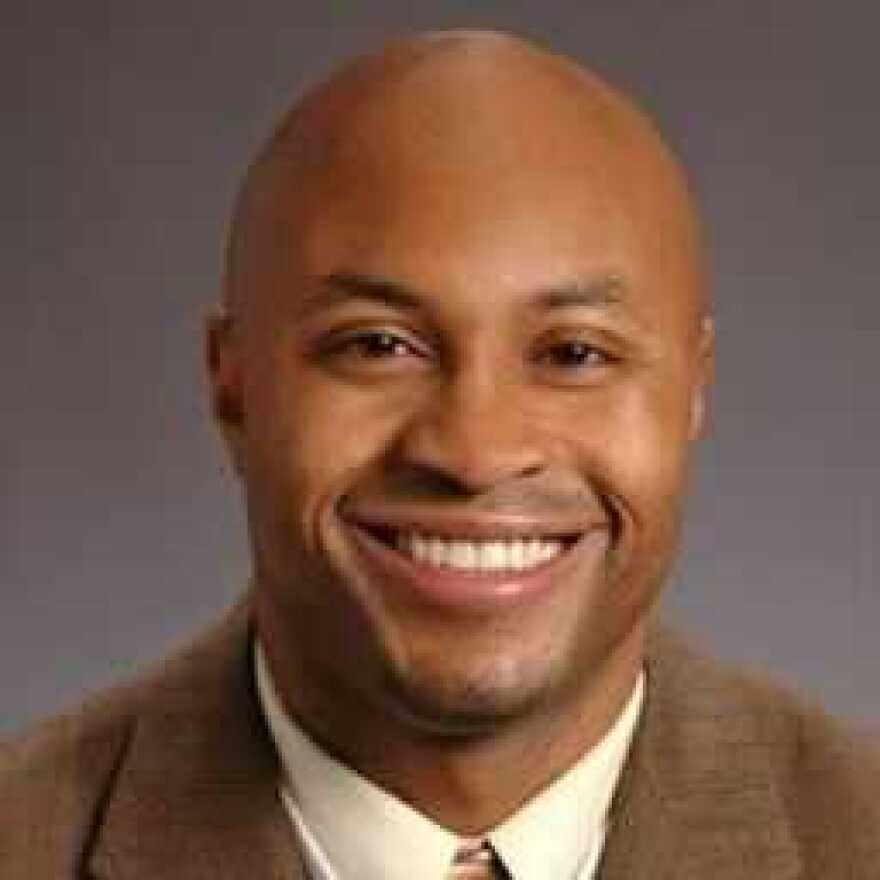The Milwaukee Bucks are in the NBA Finals for the first time in almost 50 years.
There is sure to be more national media attention as a result of the team’s success. But recently, national sports media, specifically ESPN’s First Take hosts, referred to Milwaukee as a "terrible" city. One said Milwaukee doesn’t have a robust city life compared to L.A. and Miami.
Just saw this on First Take and I'm not surprised whatsoever. Milwaukee has not covered on ESPN for decades. We don't want yall in Milwaukee when we host the NBA Finals!! @SnellSZN@nathanmarzion@brewhoop
— Logan Winser (@logan_winser) June 22, 2021
#bucksin6 #terriblecities #Milwaukee pic.twitter.com/Mqk1bD07uL
Some Milwaukeeans defended their city, highlighting things like the sports, food, music and cultural festivals. However, others — including people of color — agree that for some, this city is terrible.
@FirstTake @espn - One more reason Milwaukee is not a "terrible" city...let us know if you'd like a free tour pic.twitter.com/mqvlRaZOqN
— Milwaukee Art Museum (@MilwaukeeArt) June 23, 2021
For those of you who haven’t been to Milwaukee, this is how beautiful the city is. #FearTheDeer #ThisIsMyCrew pic.twitter.com/CS8vwQfmqz
— Wisconsin Sports Heroics (@WiSportsHeroics) June 23, 2021
Milwaukeeans Monique Liston, Ph.D., and R. Kweku Smith, Ph.D., weigh in on the conversation. Liston is the founder and chief strategist with Ubuntu Research & Evaluation, and Smith is a licensed psychologist.
Liston says the “terrible city” comment disparages the Midwest as a whole. But she also says there’s another layer: "When you talk about cities that have a high population of Black people that haven't been structurally financed or invested in, and that's not Black people's fault."

Although the commentary was a critique on how disinvestment in Milwaukee has created a lack of tourist attraction here, Liston says the comments from the sports commentators fall on the feelings of Black people. "'Cause they don't realize that it's a mostly Black population who is hearing that," she says.
Both Liston and Smith say the politics in Milwaukee play a significant role in what some people might think is terrible about the city.
"Milwaukee is the economic engine of the state; so we are all the money that's being made for the state and then blamed for all the problems at the same time," Liston says.
She continues, "So, while we are dealing with the state level government who's making decisions that don't have actual knowledge of how economics works, nor a care about actually supporting the people in the city of Milwaukee — that's a large part of what's happening here, right? Because if you gave a damn about the economic engine of the state, you would make it more accessible, you would make it more affordable, you would think about expansion, you would think about bringing businesses into the area."
"And consciously we have had three governors in a row who have made sure that that could not happen for the city of Milwaukee. So, we're talking about intentionally, in recent memory, people have been making sure that any progress that was organized in terms of local politicians was halted on the state level," Liston says.
Smith says it's a political system that was set up to do exactly what it is doing. "Until we literally change the system, no amount of work you do is ever going to make substantial changes for the masses," he says.

Smith continues, "Not until we're all willing to fight like we have nothing will this ever become something that we can change. Specifically, if it’s just with us to help ourselves, we have to really alter this whole system. So, you say, 'Well, how do you do that?' You have to create a completely different system to show how this one is obsolete, and we haven't done that. We've tried to fit into this old system that's proven time and time again is going to stand up to a good ol’ boy system."
Considering the politics that have negatively impacted Milwaukee, still, neither Liston or Smith say they'd ever accept a "terrible" label being put on the city.
"I think what is true in terms of our narrative change is that this is a city in which the realities of a racist political economic system are felt tangibly every day by Black people, and I feel like that needs to be put to the forefront," Liston says.
She says that translates to a poor nightlife, lack of economic investment, lack of opportunity and a lack of growth and development.
"When I think about furthering the conversation and making sure that the responsibility goes back to how whiteness and white people have intentionally structured this area versus Black people live here. Therefore, we’re responsible for this narrative. This was created; this wasn’t an accident," Liston says.
Smith adds, "I won't say it's terrible, but I think if you live in Milwaukee, specifically as a Black person — Black, brown person, even poor to that extent — but even more so when you have Black skin, it’s like the rose that grew out of the concrete. Milwaukee is a very rough place and it’s because of two G’s: gentrification and gerrymandering."
He says when there are people in power making decisions about Milwaukee, but don't look like most the people in Milwaukee, that continues to perpetuate the stereotypes.
"Whenever I look at Milwaukee — what I look at is it’s a horrific situation but because of the resiliency of our ancestors, the resiliency that’s in us, we still find a way to rise," Smith says.
Do you have a question about race in Milwaukee that you'd like WUWM's Teran Powell to explore? Submit it below.
_





